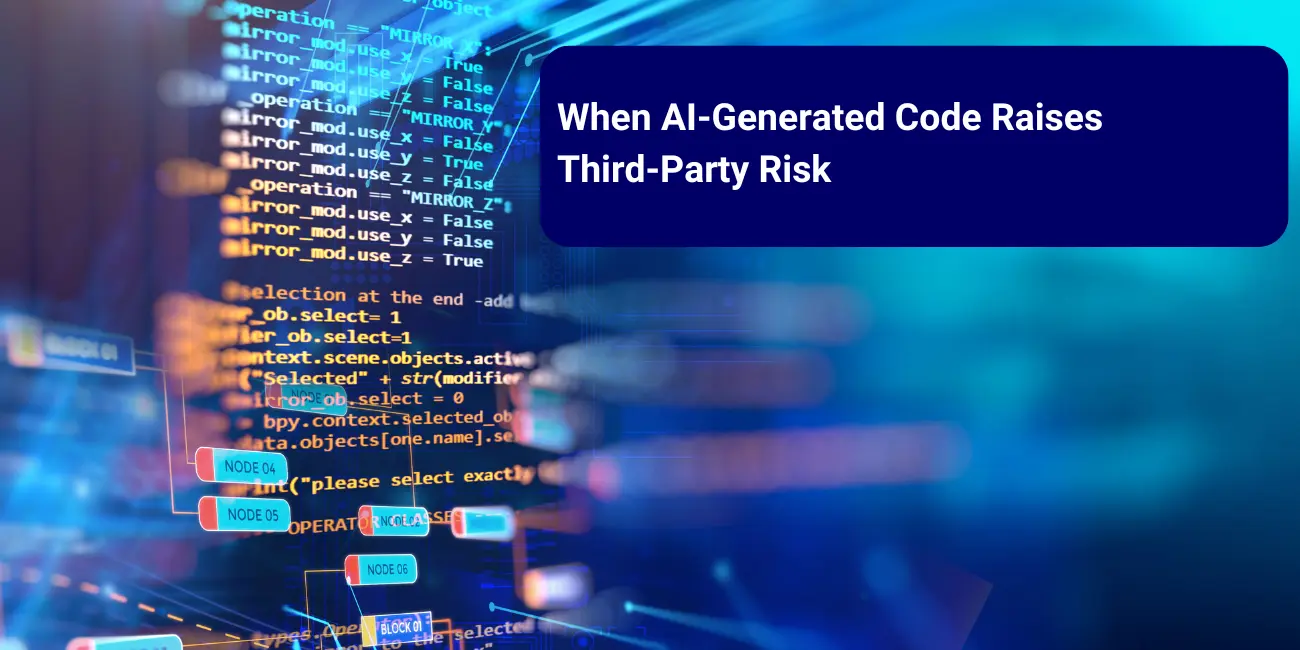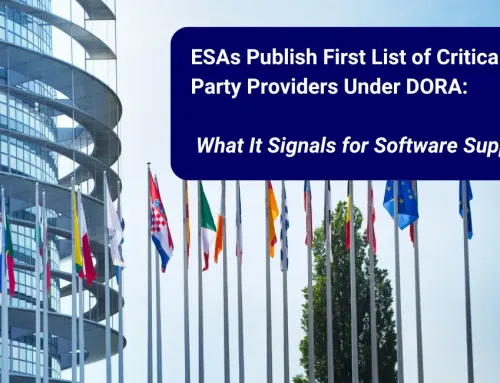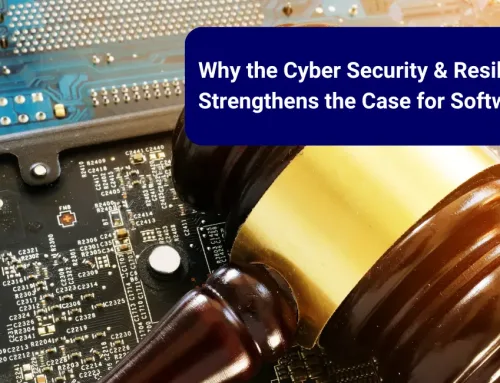When AI-Generated Code Raises Third‑Party Risk
Businesses are increasingly adopting software or SaaS applications where AI, not human developers, write the code. While this boosts speed and innovation, it also introduces new third‑party risks.
Traditional risks when licencing third party solutions such as vendor insolvency, acquisition, failure to support, or breach of contract covered and mitigated when implementing a software escrow or SaaS escrow arrangement are now compounded by AI‑specific hazards.
Even with human-built software, the deposited code in escrow can be incomplete, hard to rebuild, or lack documentation essential for continuity. Without robust verification testing procedures, the code released might be incomplete, or unusable, undermining the very purpose of software escrow.
In this blog we examine how AI-produced code exacerbates these risks and explains how you can mitigate them.
When Release Events Unfold and Why AI Code Makes Them Riskier
Traditional conditions that trigger a software escrow release of critical digital assets include:
- Vendor bankruptcy or insolvency
- Vendor ceasing support or discontinuing updates
- Breach of maintenance or licensing terms
- Transfer or loss of IP rights
In each case, access to source code and deployment materials from the vendor becomes crucial. But when AI has written significant parts of the code, additional concerns emerge:
- AI-generated modules may lack coherent comments or architectural clarity
- Dynamic or opaque dependencies may hinder rebuilds
- Documented build steps may be incomplete or inconsistent
- Subtle logic errors or bias programmed by AI may only reveal themselves at runtime
- AI code can introduce potential vulnerabilities not properly reviewed, tested and validated, due to the AI’s dependence on patterns and lack of contextual understanding
Even if code is deposited, it may not be usable for recovery or to maintain the solution without careful review and testing under the escrow commitments. That’s where software escrow verification services mitigate risks.
How Software Escrow Verification Adds Value in an AI-Driven Software World
At The Escrow Company, our software escrow verification services are optional but recommended for clients looking for assurances of the useability of the deposited assets, and especially for complex, evolving, or AI-assisted codebases:
File Integrity Test (included with all agreements)
A check performed on the deposit materials to ensure the source code and files are accessible
Comprehensive Build Verification
A technical consultant observes the depositor building the solution from the source materials, notes dependencies and confirms compilation build processes. Particularly valuable when code includes AI-generated or dynamic elements
Cloud Deployment Verification (SaaS environments)
Provides assurance that all source code, files, and deployment materials needed to build and deploy the software have been deposited and verified for usability. A specialist from The Escrow Company observes the vendor performing a full deployment.
During the verification, the consultant documents the build steps with screenshots, asks clarifying questions, and identifies any third-party dependencies. The process concludes with a detailed report, including visual evidence, that confirms the software can be successfully deployed.
An additional Code Quality Audit is also available which is designed to ensure that a third-party developer could continue to maintain the source code if ever required. As well as additional vulnerability testing to ensure vulnerabilities within the code base are identified and remedied.
SaaS Release Verification (Managed SaaS Continuity Service)
SaaS Release Verification simulates a real-life release scenario to confirm that the deposit materials and deployment scripts (like CloudFormation or Terraform) can be used to deploy the application in a clean cloud escrow environment independently by The Escrow Company. Clients have the option perform smoke-testing of the replica deployed software escrow solution.
How Software Escrow Verification Helps to Mitigate AI Code Risk Factors
| Risk Factor | Why Verification Matters |
AI-generated code may lack detailed comments or structure | We test the ability to build and deploy to confirm usability |
Tool-generated dependencies and frameworks evolve rapidly | Regular periodic verification ensures the most recent code deposits are tested |
Automated, non-human coding increases reliance on accurate metadata | Robust verification checks for documentation completeness and transparency |
Verification doesn’t need to be obligatory, but it greatly enhances assurance, especially as code becomes more automated and less human-authored.
Summary: Why Add Software Escrow Verification When Code Is AI-Written?
- Confidence in build integrity: AI-generated code could include missing modules or unclear structure. Verification confirms buildability.
- Maintainability assurance: Even if the AI produced source code, a future developer needs clear documentation and readable structure.
- Cloud readiness: AI-backed SaaS pipelines often depend on scripts and dependencies that must also be tested under live-like deployment.
- Supports compliance and procurement: A verified deposit serves as documented evidence for due diligence and audit purposes, even if not prerequisite.
If your organisation is adopting AI-powered SaaS or custom platforms, software escrow alone provides a safety net, but adding verification turns it into proactive resilience.
Interested in discussing how this optional service could support your continuity planning? We’d be happy to talk through the right fit for your AI-driven stack.
Frequently Asked Questions
Yes - more businesses are relying on software where parts of the codebase are generated by AI. This trend speeds up development but introduces new, often hidden, risks for companies that depend on third-party software vendors.
In particular, when vendors use AI to write code, especially in SaaS or cloud-based platforms, it becomes harder to verify exactly how that software works, or even if it can be rebuilt in the future.
AI-generated code introduces several unique risks:
- Lack of documentation: AI rarely writes clear comments or explanations.
- Unpredictable architecture: Structure and logic may not follow best practices.
- Dynamic dependencies: The software may pull in components that are unstable or undocumented.
- Build complexity: Without manual review, it may be unclear how to compile or deploy the application.
- Opaque data handling: AI-driven systems may store or process sensitive data in unexpected ways.
- Potential Vulnerabilities: AI code can introduce potential vulnerabilities not properly reviewed, tested and validated, due to the AI's dependence on patterns and lack of contextual understanding
In short, you might receive the source code through software escrow, but it doesn’t mean you’ll be able to use it unless it’s been thoroughly checked.
Verification is an optional service that goes beyond standard software escrow. It ensures that the deposited materials are complete, functional, and usable in a real-world scenario. It’s particularly valuable when code has been written or assisted by AI, where build and deployment processes are less predictable.
At The Escrow Company, we offer several levels of optional verification, from File Integrity Tests included in all agreements as standard, to SaaS Release Verification offering complete peace of mind by simulating the release conditions in a SaaS Environment.
When dealing with regulated sectors such as banking, healthcare, or government procurement, verification acts as third-party assurance that software assets are safe, secure, and functional.
In many cases, a verified software escrow deposit:
- Supports procurement approval processes
- Offers documented evidence for auditors
- Demonstrates your organisation’s approach to continuity planning
- Improves vendor transparency during contract negotiation
Adding verification helps you:
- Build trust with internal and external stakeholders
- Strengthen business continuity protections
- Minimise disruption if a vendor fails
- Increase confidence in AI-assisted code
- Turn risk mitigation into a commercial advantage
And for vendors, a verified software escrow deposit can actually become a sales feature , offering enterprise buyers the assurance they need to sign the deal.








